
Chinese characteristics
Liu cautions against the risks involved in carrying out such procedures, as it would be very difficult to sort out patient disputes due to a lack of regulation.
In the past, overseas patients sought organ transplants in China's poorly regulated donor market, but the country later clamped down on such surgeries for foreigners.
Liu thinks that surgery should remain the core product for China as it's more profitable and he is confident that Chinese hospitals are on par with, if not better than, those in Thailand or India for infrastructure and doctors' skills.
Some have also suggested that China promote its traditional Chinese medicine (TCM) to draw in medical tourists.
Sanya TCM Hospital in Sanya, Hainan Province, has been promoting TCM therapies such as acupuncture, massage and cupping therapy to attract tourists. Since 2002, the hospital has received over 25,000 overseas patients, most of whom hail from Russia and Central Asia. The program has proven so popular that the hospital even set up a travel agency last year to help expand its medical tourism business.
But Liu thinks it would be a mistake to position TCM as the primary medical tourism product given the limited profit margins.
Julie Munro, founder and president of the Medical Travel Quality Alliance (MTQUA), which was founded in 2009 to promote standards and practices in the industry and certifies care managers and facilitators, has met with the leaders of several Chinese medical institutions.
"They are all enthusiastic and very proud of their hospitals. But that is not enough to attract medical tourists from abroad," Munro told the Global Times.
She said that Chinese hospitals don't quite measure up to "world class" hospitals as of yet. The alliance evaluates hospitals on many aspects such as international patient communication and management, patient safety and security, partnerships and value of service.
Even smaller details such as the hospital's website matter too. Most leading hospitals for medical tourism have clear, multilingual, informative and easy-to-navigate websites, a factor many Chinese hospitals lack.
Munro added that "an international accreditation from the US, Canada, UK, or Australia is very important because China's own accreditation systems are still immature and unproven."
At the moment, about 27 public and private hospitals in China have been accredited and certified by JCI (Joint Commission International) but only a few of these are qualified to treat patients from abroad.
"Aside from quality in medical treatment and care, there is a lack of infrastructure for care management that would create bonds of trust between the medical tourist and the provider of health care," said Munro.
Money-grabbing feared
One of the concerns for developing medical tourism is that China is in the process of healthcare reform and one of its primary goals is to strengthen the non-profit status of public hospitals. Some people are concerned that medical tourism, which is a relatively high-end form of healthcare, might take away resources needed for the basic healthcare of the Chinese population.
"I don't think there is a conflict," said Liu, adding that private hospitals in China are usually too small or not advanced enough to serve international clients. According to regulations, public hospitals are allowed to set aside 10 percent of their medical resources to VIP services. Some of these VIP service resources, as well as private and foreign investments, could be introduced to develop medical tourism, he suggested.
Everything seems to hinge on the government's resolve and commitment to developing medical tourism, since building the industry to be competitive would involve cooperation between a number of government agencies including health, tourism and immigration.
Taiwan only started to develop medical tourism about five years ago but has quickly taken off and now attracts tens of thousands of mainlanders, precisely because the Taiwan authorities have stepped up to promote it, said Liu.
There are signs that the authorities on the mainland are beginning to change their minds. Liu said that the Ministry of Health has approved a research project that would look into entry criteria for facilities engaged in medical tourism, as well as an operation process and an evaluation system, in order to guide the development of the industry.
"We need to set the rules of the game from the get-go, otherwise it could be chaos once more people caught on to the idea," he said.

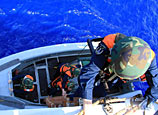
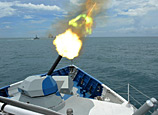

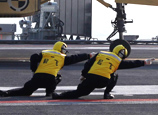



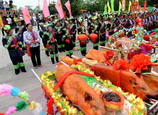

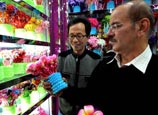






 A father posed nude at an art studio, to raise money for his children's medical expenses
A father posed nude at an art studio, to raise money for his children's medical expenses


![]()
